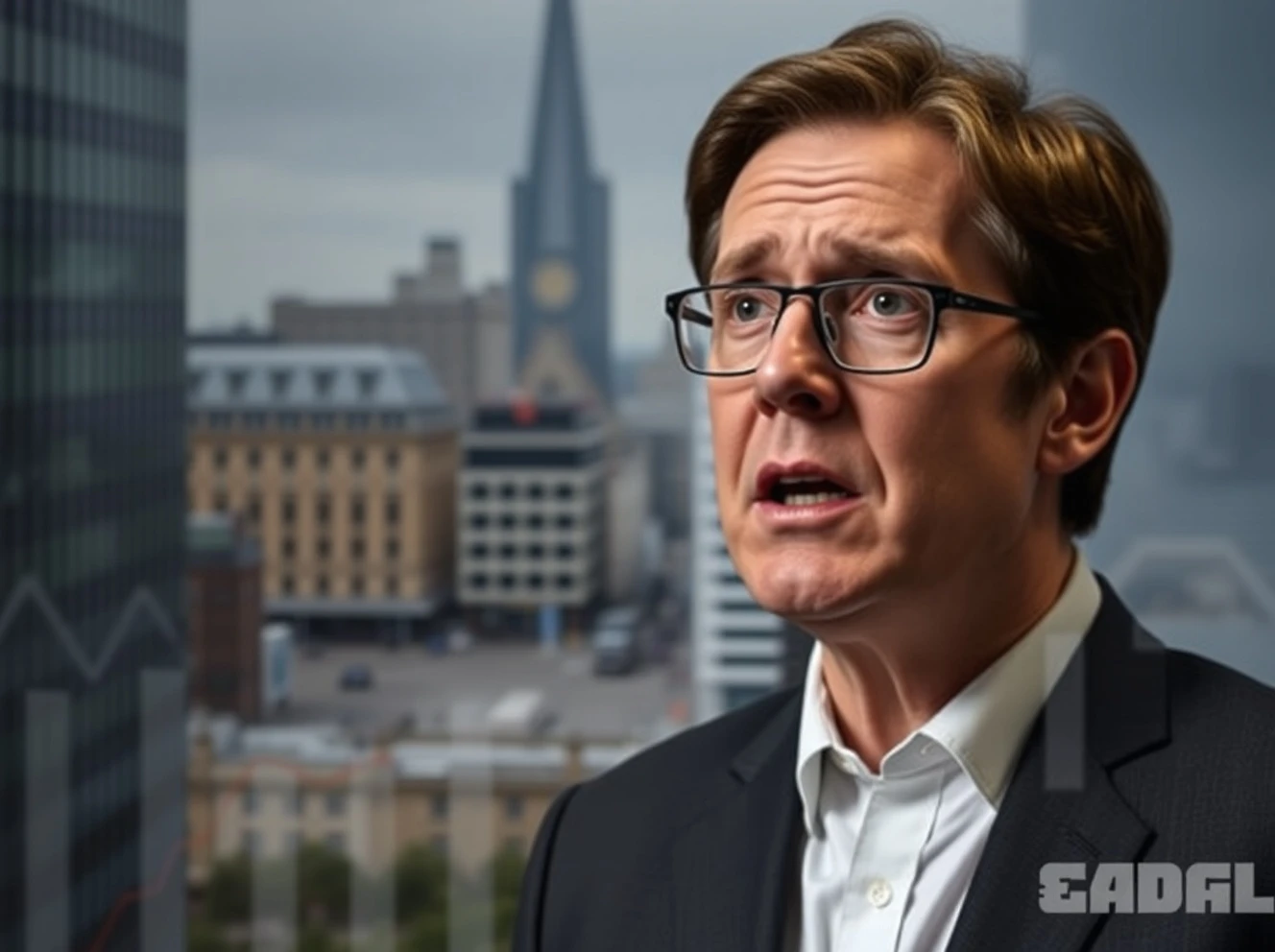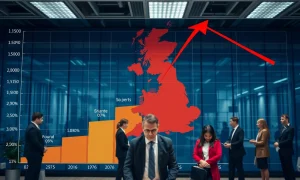Britain stands at the precipice of an economic crisis according to one of the nation’s most respected business leaders. Lord Stuart Rose, former Marks & Spencer chairman, issued a stark warning about the country’s direction under current leadership. His comments come amid growing business unrest and significant investment withdrawals.
Britain Economic Crisis Warning from Top Business Leader
Lord Rose delivered his sobering assessment during a Times Radio interview. He stated Britain genuinely approaches a crisis point. Furthermore, he called for radical action to restart growth and create jobs. Rose emphasized the urgent need for policy changes to avoid severe economic difficulties.
Major Investment Withdrawals Signal Trouble
Sir Jim Ratcliffe’s Ineos confirmed it stopped investing in Britain completely. The company diverted billions of pounds to the United States instead. This decision represents a significant blow to the UK economy. Ineos cited Labour’s tax policies as the primary reason for this strategic shift.
Tax Hikes Face Mounting Criticism
Chancellor Rachel Reeves faces increasing pressure over her £40bn tax programme. Business leaders argue these measures derail economic recovery. The windfall tax on oil and gas profits particularly draws criticism. This policy raised the effective tax rate on producers to 78 percent.
Employment Legislation Concerns
Lord Rose questioned the timing of Labour’s Employment Rights Bill. He suggested it would make hiring more difficult for companies. Rose emphasized Britain’s traditionally flexible labor force. He argued against implementing restrictive measures during economic uncertainty.
Business Community Expresses Growing Unease
The intervention reflects broader business community concerns. Ineos Energy boss Brian Gilvary echoed similar sentiments. He described Britain’s fiscal regime as increasingly unstable. Gilvary contrasted this with policy stability in the United States.
Budget Speculation and Economic Comparisons
Economists speculate Reeves may need additional £20bn-£30bn in autumn. Some draw comparisons with the 1976 Labour government. That administration required an International Monetary Fund bailout. Current economic indicators suggest challenging times ahead.
Political Response and Balancing Act
Conservative critics quickly seized on Rose’s comments. Shadow energy secretary Claire Coutinho supported the business perspective. She emphasized the need to prioritize growth and jobs. The government faces difficult decisions in the upcoming budget.
Conclusion: Growth as Fundamental Priority
Lord Rose summarized the core issue facing Britain’s economy. Without growth, wealth creation becomes impossible. Without wealth creation, public services suffer. This fundamental economic reality demands urgent attention and action.
Frequently Asked Questions
What specific policies does Lord Rose criticize?
Rose criticizes Labour’s tax increases, particularly the windfall tax on energy profits, and the timing of employment legislation changes.
Why did Ineos stop investing in Britain?
Ineos cited Labour’s tax policies and what it perceives as an unstable fiscal environment as reasons for diverting investments to the United States.
What is the effective tax rate on oil and gas producers?
The windfall tax has raised the effective tax rate on oil and gas producers to 78 percent, one of the highest rates globally.
How does Britain’s situation compare historically?
Some economists compare the current situation to 1976 when Britain required an IMF bailout due to economic difficulties.
What solutions does Lord Rose propose?
Rose calls for radical action to restart growth, create jobs, and reconsider current tax and employment policies.
When is the next budget scheduled?
The next budget is scheduled for November 26, leaving businesses uncertain about potential additional tax measures.








